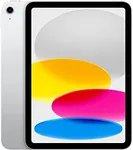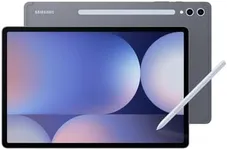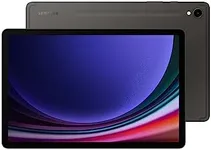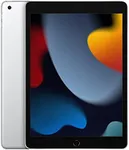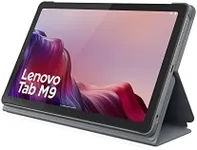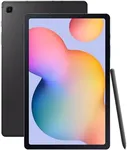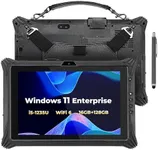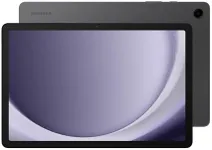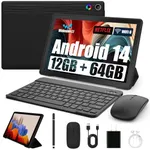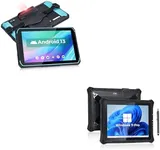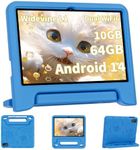Buying Guide for the Best Tablet For Business
Choosing the right tablet for business use involves considering several key specifications that will ensure the device meets your professional needs. A good business tablet should be powerful, versatile, and reliable, allowing you to perform tasks efficiently whether you're in the office or on the go. Here are the key specs to consider and how to navigate them to find the best fit for your business requirements.Operating SystemThe operating system (OS) is the software that runs the tablet and supports its basic functions. The main options are iOS, Android, and Windows. iOS is known for its smooth performance and strong security features, making it a good choice for those who are already in the Apple ecosystem. Android offers a wide range of customization options and is compatible with many apps, which can be beneficial for flexibility. Windows tablets are great for those who need to run traditional desktop applications and prefer a more PC-like experience. Choose an OS that aligns with your existing devices and software needs.
ProcessorThe processor, or CPU, is the brain of the tablet, determining how fast and efficiently it can run applications. For business use, a powerful processor is essential to handle multitasking and demanding applications. Entry-level processors are suitable for basic tasks like email and web browsing. Mid-range processors can handle more intensive tasks such as video conferencing and document editing. High-end processors are ideal for heavy multitasking, running complex software, and ensuring smooth performance. Consider the types of tasks you'll be performing and choose a processor that can handle them without lag.
RAMRAM (Random Access Memory) affects the tablet's ability to run multiple applications simultaneously and manage large files. For basic business tasks, 4GB of RAM may be sufficient. However, for more demanding applications and multitasking, 8GB or more is recommended. If you frequently work with large files, run multiple apps at once, or use resource-intensive software, opting for higher RAM will ensure smoother performance and better productivity.
StorageStorage capacity determines how much data you can keep on your tablet, including apps, documents, and media files. Tablets typically come with storage options ranging from 32GB to 1TB. For basic use, 64GB might be enough, but if you store a lot of files or use many apps, 128GB or more is advisable. Some tablets also offer expandable storage via microSD cards, which can be a cost-effective way to increase capacity. Assess your storage needs based on the volume of data you handle and choose accordingly.
Display Size and QualityThe display size and quality are crucial for readability and ease of use. Business tablets usually range from 8 to 13 inches. Smaller screens are more portable and easier to handle, while larger screens provide a better viewing experience for tasks like reading documents, video conferencing, and multitasking. Additionally, consider the display resolution; higher resolution means sharper and clearer images, which is important for detailed work. Choose a size and resolution that balance portability with your need for a clear and comfortable viewing experience.
Battery LifeBattery life is a critical factor, especially if you need to work on the go. A good business tablet should offer at least 8-10 hours of battery life to get you through a full workday without needing to recharge. If you travel frequently or work in environments where charging is not always possible, look for tablets with longer battery life. Consider your typical workday and how often you'll be away from a power source to determine the battery life you need.
ConnectivityConnectivity options such as Wi-Fi, Bluetooth, and cellular capabilities are important for staying connected and productive. Wi-Fi is essential for internet access, while Bluetooth allows you to connect peripherals like keyboards and mice. Cellular connectivity (4G/5G) is useful if you need internet access on the go without relying on Wi-Fi. Consider your work environment and how often you need to be connected to the internet or other devices to choose the right connectivity options.
Security FeaturesSecurity features are vital for protecting sensitive business data. Look for tablets with robust security options such as biometric authentication (fingerprint or facial recognition), encryption, and secure boot. Some tablets also offer advanced security features like remote wipe and secure access controls. Assess the level of security you need based on the sensitivity of the data you handle and choose a tablet that offers the necessary protections.
Accessories and ExpandabilityAccessories such as keyboards, styluses, and docking stations can enhance the functionality of your tablet. A detachable keyboard can turn your tablet into a laptop-like device, while a stylus is useful for note-taking and drawing. Docking stations can provide additional ports and connectivity options. Consider the accessories that will improve your productivity and ensure the tablet you choose is compatible with them.
